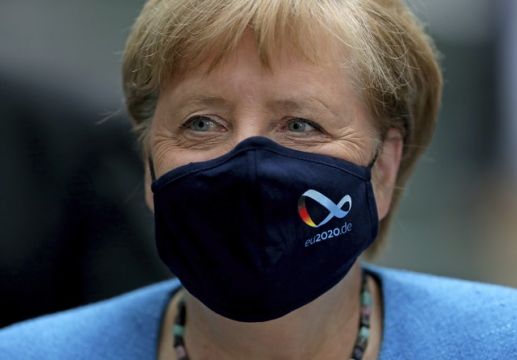Germany's federal and state governments have agreed to introduce new lockdown measures starting from November 2nd to curb the spread of the coronavirus, German Chancellor Angela Merkel said on Wednesday.
"These are tough measures," Ms Merkel told reporters, adding that authorities would adapt the curbs within two weeks if need be.
The emergency lockdown will apply nationwide after Ms Merkel agreed with regional leaders to take national action to prevent hospitals being overwhelmed.
Ms Merkel said numbers in German intensive care units had doubled over the past 10 days and exponential growth of the virus was being seen.
She said that in many areas, authorities were no longer able to track and trace the virus because of capacity limits and that the curve must be flattened once again.
Germany had reached a point where it could not say where 75 per cent of its cases had come from, Ms Merkel said on Wednesday.
Measures
Under the new measures, it is aimed to keep schools and kindergartens open.
Private meetings will be limited to a maximum of 10 people from no more than two households.
German citizens are asked to call off all non-essential travel.
All bars and restaurants will be closed in the renewed lockdown, while shops will remain open with fewer than one person per 10 square metres.
A €10 billion aid package is expected to pay firms a share of their lost sales during the shutdown.
Ms Merkel promised on Wednesday that firms hit by the new partial lockdown would get economic support, saying smaller companies would get 75 per cent of their income in support.
"We will compensate affected companies, institutions and clubs," she said.
Germany was widely praised for keeping infection and death rates below those of many of its neighbours in the first phase of the crisis but is now in the midst of a second wave.
Cases rose by 14,964 to 464,239 in the last 24 hours, Germany's infections diseases agency, the Robert Koch Institute, said on Wednesday.
Deaths jumped by 85 to 10,183, fuelling fears about the health system after Ms Merkel warned it could hit breaking point if infections continue to spiral.
"If we wait until intensive care is full, it is too late," said Health Minister Jens Spahn, who last week tested positive for the virus.







